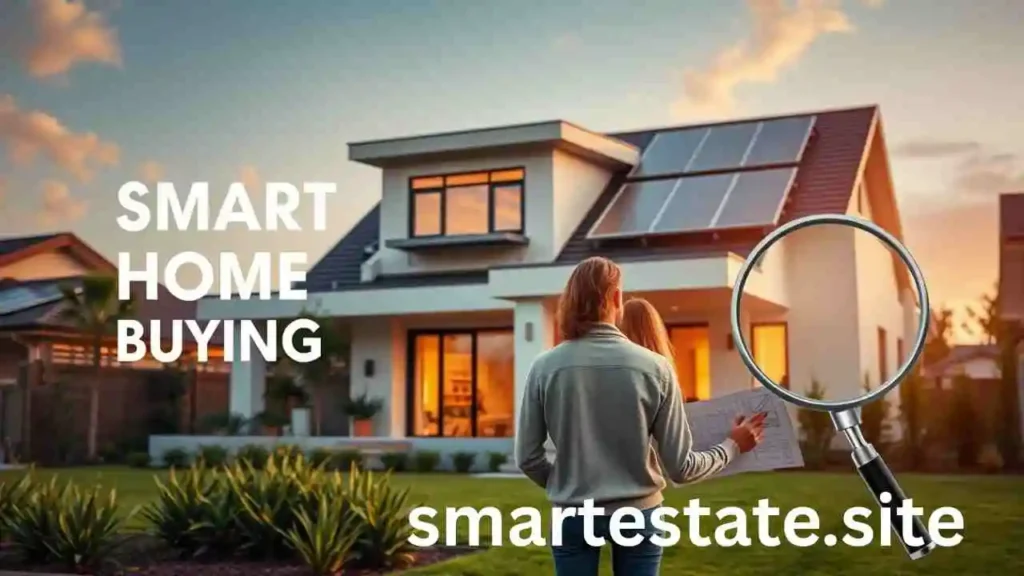Buying a home is already a complex, emotional rollercoaster. But throw “LHB” into the mix, and suddenly you’re in an entirely different ball game. Maybe you’ve heard the term tossed around in online forums, or a real estate agent mentioned it casually like everyone should know what it means. Truth is, most people don’t.
A growing movement to create smarter, more sustainable living spaces includes LHB (Let’s Home Better) homes, but not all of these homes live up to the hype.
The noise level is high. Let’s cut through it. Here are 10 secrets every buyer needs to know before signing anything.
Table of Contents
10 LHB Home Buyers Secrets
Secret #1: Always Research the Builder First
Let’s just start here because, frankly, this one gets overlooked way too often. People fall in love with pictures, a modern kitchen, and possibly the lighting, but they don’t remember who made it.
Before you even step foot in a model unit, Google the builder. Read the reviews. Ask past buyers. If they’re dodging transparency or have half-finished projects littering their portfolio, run.
A polished website can’t plaster over poor workmanship.
Secret #2: Understand What “LHB” Really Means
So many buyers hear “LHB” and think it guarantees quality, kind of like the “organic” label at the grocery store. But here’s the catch: there’s no one regulating that label.
Some homes are genuinely designed for longevity, low-energy consumption, and efficient space usage. Others? Just marketing fluff.
The real LHB homes prioritize function over fluff. Look for documentation—materials used, insulation ratings, energy performance metrics. If they’re vague, be suspicious.
Secret #3: Location Isn’t Just About the Zip Code
You’ve heard it before: “location, location, location.” But let’s unpack that.
LHB communities often pop up in up-and-coming areas. That’s a plus for long-term value—but it also means construction, limited infrastructure, and maybe fewer nearby amenities for now.
Try visiting the neighborhood at night. Or on a rainy day. Or during school pickup hours. You’ll see it differently.

Secret #4: Don’t Skip the Fine Print in Contracts
Yes, contracts are long and dry. Yes, you need to read them anyway.
Some LHB homes come with shared ownership models, HOA agreements, or restrictive clauses you won’t hear about during the tour.
Watch out for:
- Maintenance fees that spike after year one
- Vague delivery timelines
- Clauses allowing material substitutions “of similar quality”
“Similar” is subjective—and that’s where you lose.
Secret #5: Know the Right Time to Buy
Buying in a rush is like grocery shopping hungry. Everything looks good until you check out.
The LHB market, like most real estate, ebbs and flows.There are more listings in the spring, but there is also more competition.Late fall? Fewer options, but sellers may be more desperate.
Also, interest rates fluctuate. One percentage point can change your monthly payment by hundreds. So yeah—it matters.
Secret #6: Aesthetics Can Be Deceptive
A modern open-plan kitchen with a hanging light fixture? Lovely. But does the water pressure hold up? What about the soundproofing between rooms?
LHB homes sometimes emphasize aesthetics to appeal to first-time buyers. But a designer sink doesn’t mean the plumbing behind it is solid.
Bring a checklist. Check behind doors, under sinks, attic insulation. Looks fade—bones matter.
Secret #7: Financing an LHB Home is a Little Different
Not every lender understands the nuances of financing an LHB home. Some may even undervalue it because they don’t factor in energy efficiency or future resale boosts.
Getting the correct mortgage is more important than simply obtaining one.Look into green home loans or incentives for energy-efficient properties.
Also, be aware of hidden conditions. “Pre-approved” is just a flirtation, not a commitment.
Secret #8: Inspect, Then Re-Inspect
Think of the first inspection as a first date—it’s all charm and best behavior.
But go back. Take a second look. Bring a more skeptical friend. A contractor if you can.
LHB homes may involve newer construction methods. Some inspectors aren’t even familiar with them, so you’ll want someone who is. Ask specifically: do they know LHB standards?
Secret #9: Talk to the Neighbors
This one feels awkward, but do it. Knock on a few doors. Say you’re thinking of moving in and ask what they think.
You’ll get more from five minutes with a neighbor than two hours with a sales agent. They’ll tell you if the builder drags their feet. If the walls are thin. If the HOA is, well… impossible.
The truth lives next door.
Secret #10: Negotiate Like It’s Your Job
You see, nobody enjoys negotiating. It’s not comfortable. But skipping it is like burning cash.
Don’t just ask about price. Ask for upgrades, closing costs, warranties.
Say something like, “I love the home, but I’m also considering X. Is there flexibility on the price or maybe premium flooring?” You’ll be shocked at how much you can obtain.
Bonus Tips for First-Time LHB Buyers
- Bring someone who’s bought a home before.
- Inquire about the builder’s prior LHB project sales history.
- Don’t be dazzled by “smart home” features—check if they’re actually useful.
- Keep a checklist during showings.
- Take photos, especially of things that bug you.

Solutions for Smarter LHB Home Buying Decisions
Buying an LHB (Let’s Home Better) property can feel like stepping into a maze—there’s potential at every turn, but also plenty of dead ends. The good news? Most pitfalls can be avoided with the right strategies. Below are actionable solutions for anyone looking to make a confident, informed LHB home purchase in 2025.
1. Vet the Builder with a Real Checklist
Don’t rely on surface-level reviews or polished sales pitches. Create a due diligence checklist that includes:
- Past project addresses (visit them!)
- Online reviews over multiple platforms
- Project delays or legal issues
- Quality of after-sales service
Consider reaching out to past buyers directly if possible—they’ll tell you what Google won’t.
2. Ask for Third-Party Certifications
Not all LHB homes follow the same standards. To ensure you’re getting a genuinely efficient property:
- Look for certifications like IGBC, EDGE, or GRIHA.
- Ask for documentation of thermal insulation, rainwater harvesting systems, and energy-efficient ratings.
- Cross-check claims with a green building expert if needed.
3. Get a Specialized Home Inspector
Standard inspectors might miss unique LHB features or flaws. Hire someone familiar with:
- Sustainable architecture
- Smart systems integration
- Structural performance of modern eco-materials
A second inspection during different times of day (morning vs evening) can also reveal overlooked issues like sunlight, ventilation, or neighborhood noise.
4. Use a Real Estate Agent with LHB Experience
Most agents will say they can handle an LHB deal, but few have specialized experience. Ask specifically:
- How many LHB transactions have you managed?
- What’s your take on this builder’s previous projects?
- Can you spot greenwashing tactics?
An experienced LHB-focused agent can spot red flags early and help you negotiate based on construction specs.
5. Secure the Right Financing for LHB Homes
Conventional home loans may undervalue LHB properties. Look into:
- Green home loan programs from major banks
- Government-backed subsidies for energy-efficient homes
- Interest rate discounts for certified sustainable housing
Don’t just ask “can I afford this?” Ask “am I using the smartest financing tool available?”
6. Demand Transparent Contracts
Before signing, ask the seller or builder to walk you through:
- Warranty terms (structure, appliances, finishes)
- Maintenance and HOA fees
- Customization flexibility
- Resale restrictions
Consider hiring a real estate lawyer—especially if you’re a first-time buyer.
7. Take a “Live-In Test” if Possible
Some builders offer short stay experiences. Even one night in a show flat can reveal practical issues like noise levels, plumbing quirks, or temperature shifts.
8. Map the Community’s Future
Talk to local authorities, read city planning reports, and check for:
- Upcoming roads or metro stations
- School ratings and hospital proximity
- Commercial development plans
Solutions for Smarter LHB Home Buying Decisions
Buying an LHB (Let’s Home Better) property can feel like stepping into a maze—there’s potential at every turn, but also plenty of dead ends. The good news? Most pitfalls can be avoided with the right strategies. Below are actionable solutions for anyone looking to make a confident, informed LHB home purchase in 2025.
Conclusion
LHB homes can be a fantastic investment. They are frequently more intelligent, effective, and more appropriate for our modern lifestyle. However, they are not impervious to bullets. Not one-size-fits-all, either.
Purchasing one is similar to dating someone who has a great online profile in that you need to meet them, learn more about them, and follow your gut.
Therefore, enter this market with an open mind. Pose inquiries. Be inquisitive. And don’t hurry things. After all, you’re laying the foundation for your future life when you purchase a home.
FAQs
1. What distinguishes LHB residences from ordinary homes?
LHB homes emphasize sustainable design, smart space use, and energy efficiency. But not all homes labeled LHB actually meet those ideals—some are just marketing spin.
2. Is buying an LHB home a good investment in 2025?
If you choose wisely, yes. Many LHB homes are in developing neighborhoods with good growth potential, but you have to vet the builder and location carefully.
3. How can I find trusted LHB real estate agents?
Look for agents who specialize in sustainable or smart homes. Ask if they’ve worked with LHB properties before and how many deals they’ve closed in that niche.
4. During the inspection, what should I look out for?
Examine the electrical panels, insulation, water pressure, and energy-saving features. Also, make sure the inspector is familiar with LHB standards—not all are.
5. Do LHB homes come with any warranties?
Many do, but the terms vary. Always ask for warranty details upfront, especially on structural elements and appliances. Some builders offer one-year cosmetic and ten-year structural warranties.
Read More
LHB Properties Investment Strategies
